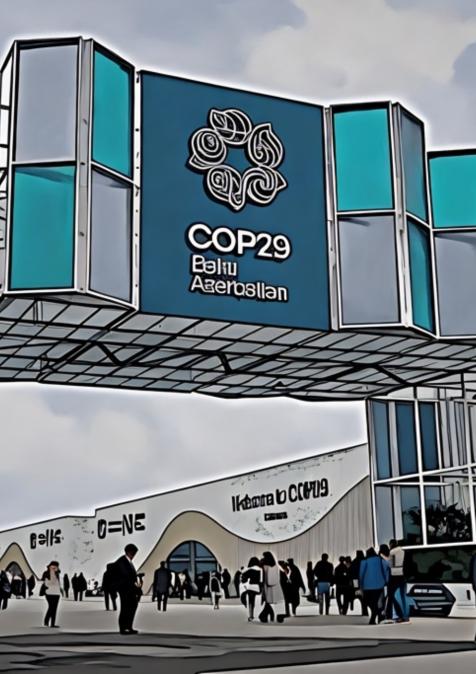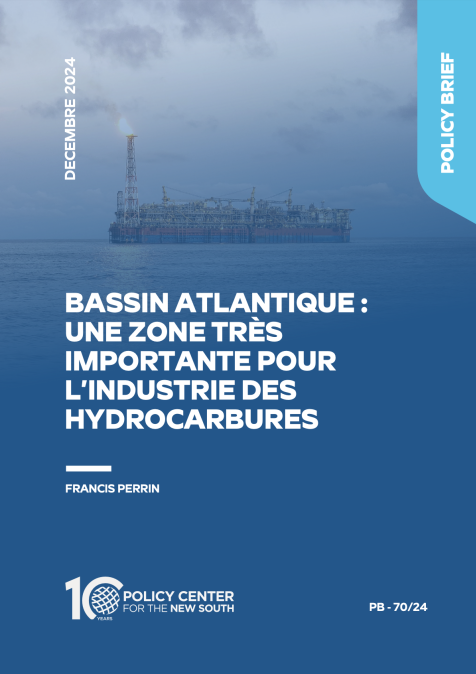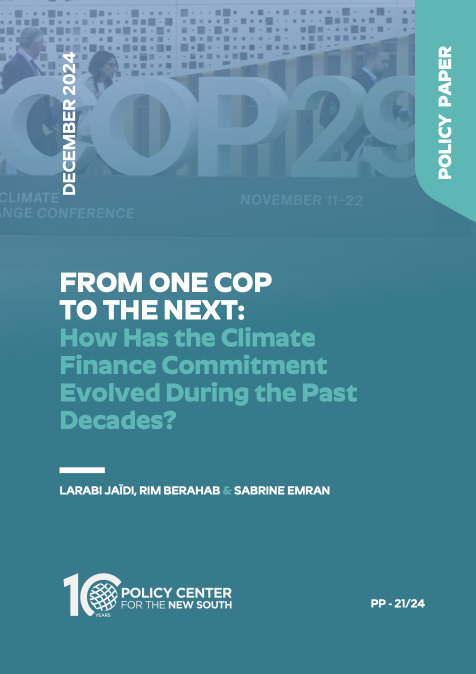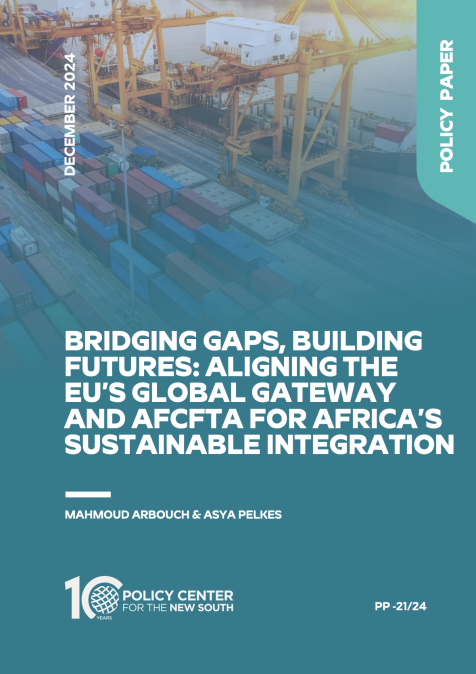In this interview, with Mr.Carlos Alexandre Monteiro Reis, Head of the Rabat Programme Office, UNOCT, Morocco, we discuss the current efforts being undertaken to counteract the radicalization of extremist movements, as well as the need for enhanced cooperation to support impoverished and less educated regions. We explore the connection between extremism and socioeconomic conditions, examining how collaboration can effectively address and mitigate these phenomena.
RELATED CONTENT
-
 AuthorsDecember 20, 2024This Paper was originally published on geopolitique.eu In an era of unprecedented global interconnectedness, developing countries face an increasingly complex and often hostile economic landscape. This landscape is shaped by three main groups of policy constraints. First, the rise among major powers of protectionist tendencies has made the global environment more challenging, particularly as advanced economies increasingly turn to industrial policies to achieve specific economic ob ...
AuthorsDecember 20, 2024This Paper was originally published on geopolitique.eu In an era of unprecedented global interconnectedness, developing countries face an increasingly complex and often hostile economic landscape. This landscape is shaped by three main groups of policy constraints. First, the rise among major powers of protectionist tendencies has made the global environment more challenging, particularly as advanced economies increasingly turn to industrial policies to achieve specific economic ob ... -
 AuthorsDecember 20, 2024Ce papier a été initialement publié sur legrandcontinent.eu Alors que le monde n’a jamais été si interconnecté, les pays en développement sont confrontés à un paysage économique de plus en plus complexe et souvent hostile, façonné par trois grands groupes de contraintes politiques distinctes. Premièrement, la montée des tendances protectionnistes parmi les grandes puissances a rendu l’environnement mondial plus difficile, en particulier parce que les économies avancées se tourne ...
AuthorsDecember 20, 2024Ce papier a été initialement publié sur legrandcontinent.eu Alors que le monde n’a jamais été si interconnecté, les pays en développement sont confrontés à un paysage économique de plus en plus complexe et souvent hostile, façonné par trois grands groupes de contraintes politiques distinctes. Premièrement, la montée des tendances protectionnistes parmi les grandes puissances a rendu l’environnement mondial plus difficile, en particulier parce que les économies avancées se tourne ... -
 AuthorsDecember 20, 2024Este artículo se publicó originalmente en legrandcontinent.eu En una era de interconexión mundial sin precedentes, los países en desarrollo se enfrentan a un panorama económico cada vez más complejo y a menudo hostil. Este panorama está configurado por tres grupos principales de limitaciones políticas. En primer lugar, el aumento entre las grandes potencias de las tendencias proteccionistas ha hecho más difícil el entorno mundial, sobre todo porque las economías avanzadas recurren ...
AuthorsDecember 20, 2024Este artículo se publicó originalmente en legrandcontinent.eu En una era de interconexión mundial sin precedentes, los países en desarrollo se enfrentan a un panorama económico cada vez más complejo y a menudo hostil. Este panorama está configurado por tres grupos principales de limitaciones políticas. En primer lugar, el aumento entre las grandes potencias de las tendencias proteccionistas ha hecho más difícil el entorno mundial, sobre todo porque las economías avanzadas recurren ... -
 AuthorsDecember 20, 2024The agreement reached at COP 29 to provide $300 billion annually in climate financing to developing countries (excluding China) by 2035 marks a significant milestone, tripling the previous target. Yet, the response from developing countries has been overwhelmingly negative. A statement from the group of least developed countries labeled the agreement “a staggering betrayal of the world’s most vulnerable.” Similarly, representatives from major developing countries like India and Nige ...
AuthorsDecember 20, 2024The agreement reached at COP 29 to provide $300 billion annually in climate financing to developing countries (excluding China) by 2035 marks a significant milestone, tripling the previous target. Yet, the response from developing countries has been overwhelmingly negative. A statement from the group of least developed countries labeled the agreement “a staggering betrayal of the world’s most vulnerable.” Similarly, representatives from major developing countries like India and Nige ... -
AuthorsDecember 20, 2024Le bassin Atlantique est une zone très importante pour l’industrie internationale des hydrocarbures (pétrole et gaz naturel). Elle l’est en termes de réserves, de production et d’exportation de pétrole et de gaz. De plus, son potentiel est loin d’être complètement exploité, ce qui signifie qu’elle continuera à jouer un rôle majeur dans ce secteur pendant de longues années. La partie américaine du bassin Atlantique pose d’ailleurs un sérieux problème aux pays de l’OPEP+, une coalitio ...
-
AuthorsDecember 19, 2024This paper assesses the outcomes of COP29 in Baku, focusing on its achievements and shortcomings in advancing global climate governance. Key milestones included the adoption of the new collective quantified goal (NCQG), the tripling of climate finance commitments to $300 billion annually by 2035, and progress on Article 6 carbon markets to mobilize international cooperation and finance. However, finance remains insufficient to meet the needs of developing countries, and unresolved i ...
-
AuthorsAsya PelkesDecember 19, 2024The European Union’s (EU) Global Gateway initiative, established to enhance global connectivity and sustainable infrastructure, offers a significant opportunity to align with Africa’s development goals under the African Continental Free Trade Area (AfCFTA). However, the challenge lies in whether the Global Gateway can effectively complement AfCFTA’s objectives of boosting intra-African trade and industrialization by addressing critical infrastructure gaps. This paper examines how th ...
-
December 19, 2024This episode examines the contrasting approaches to migration governance between Africa and Europe, where over 70% of African migration occurs within the continent, emphasizing regional integration and development, while European strategies prioritize externalization, border security, a...
-
-
Lula at Midterm: The G20 Summit in Brazil at the Intersection of Domestic and Foreign Policy AgendasAuthorsNizar MessariDecember 18, 2024The G20 Summit held in November 2024 in Rio de Janeiro, Brazil, under the Brazilian G20 presidency, showed what decentering from the Western agenda and Western domination of world politics could mean. The summit’s main achievement was the constitution of an Alliance against Hunger and Poverty, with a membership of, and funds mobilized from, not only all G20 members, but also from more than 60 other countries. In fact, what the West showed was discomfort at not having its agenda, its ...






